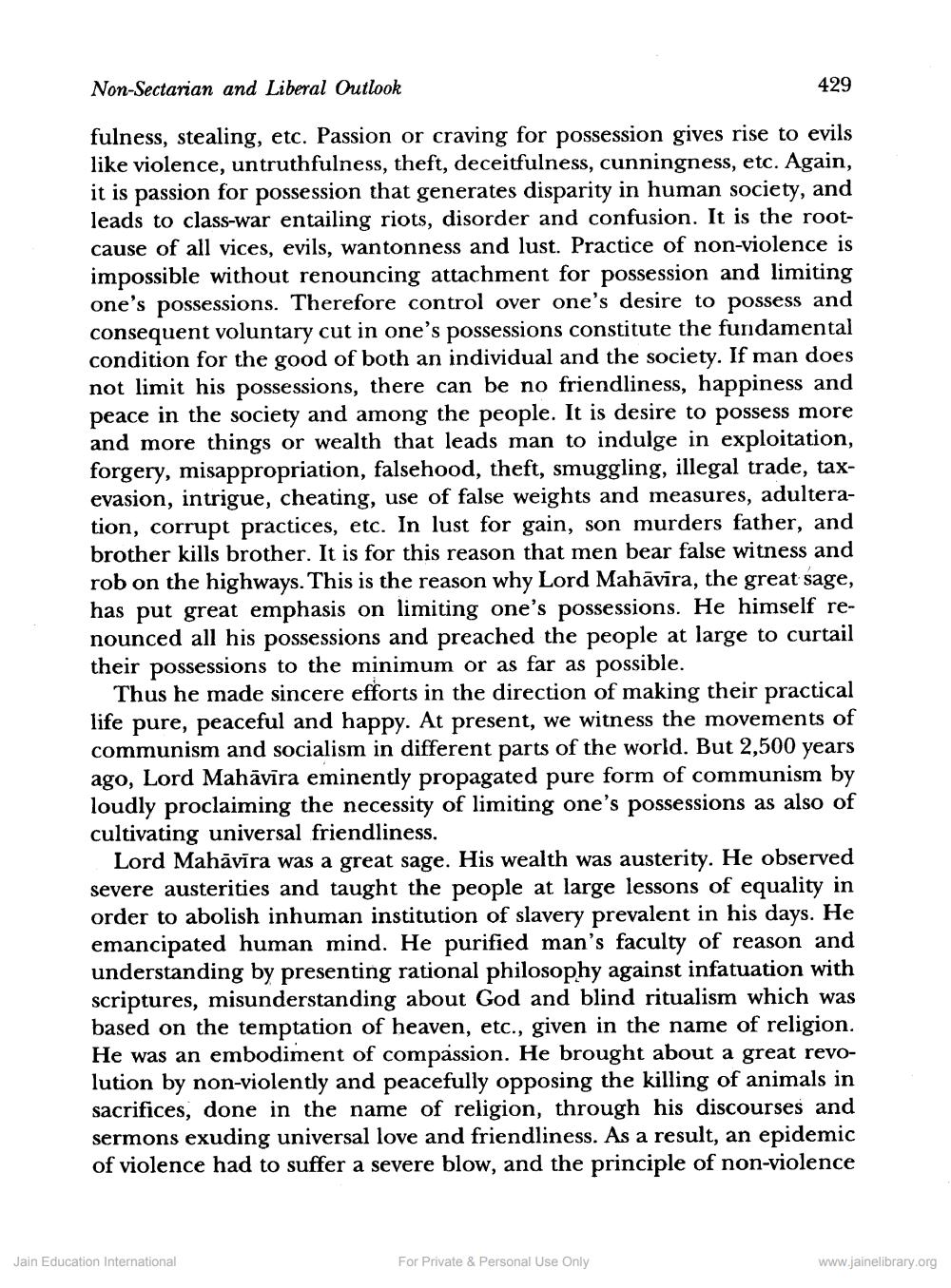________________
Non-Sectarian and Liberal Outlook
429
fulness, stealing, etc. Passion or craving for possession gives rise to evils like violence, untruthfulness, theft, deceitfulness, cunningness, etc. Again, it is passion for possession that generates disparity in human society, and leads to class-war entailing riots, disorder and confusion. It is the rootcause of all vices, evils, wantonness and lust. Practice of non-violence is impossible without renouncing attachment for possession and limiting one's possessions. Therefore control over one's desire to possess and consequent voluntary cut in one's possessions constitute the fundamental condition for the good of both an individual and the society. If man does not limit his possessions, there can be no friendliness, happiness and peace in the society and among the people. It is desire to possess more and more things or wealth that leads man to indulge in exploitation, forgery, misappropriation, falsehood, theft, smuggling, illegal trade, taxevasion, intrigue, cheating, use of false weights and measures, adulteration, corrupt practices, etc. In lust for gain, son murders father, and brother kills brother. It is for this reason that men bear false witness and rob on the highways. This is the reason why Lord Mahāvīra, the great sage, has put great emphasis on limiting one's possessions. He himself renounced all his possessions and preached the people at large to curtail their possessions to the minimum or as far as possible.
Thus he made sincere efforts in the direction of making their practical life pure, peaceful and happy. At present, we witness the movements of communism and socialism in different parts of the world. But 2,500 years ago, Lord Mahāvīra eminently propagated pure form of communism by loudly proclaiming the necessity of limiting one's possessions as also of cultivating universal friendliness.
Lord Mahāvīra was a great sage. His wealth was austerity. He observed severe austerities and taught the people at large lessons of equality in order to abolish inhuman institution of slavery prevalent in his days. He emancipated human mind. He purified man's faculty of reason and understanding by presenting rational philosophy against infatuation with scriptures, misunderstanding about God and blind ritualism which was based on the temptation of heaven, etc., given in the name of religion. He was an embodiment of compassion. He brought about a great revolution by non-violently and peacefully opposing the killing of animals in sacrifices, done in the name of religion, through his discourses and sermons exuding universal love and friendliness. As a result, an epidemic of violence had to suffer a severe blow, and the principle of non-violence
Jain Education International
For Private & Personal Use Only
www.jainelibrary.org




